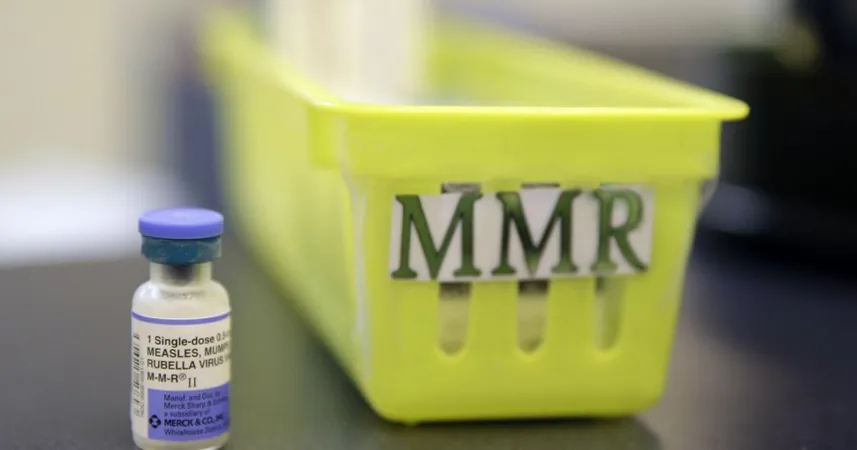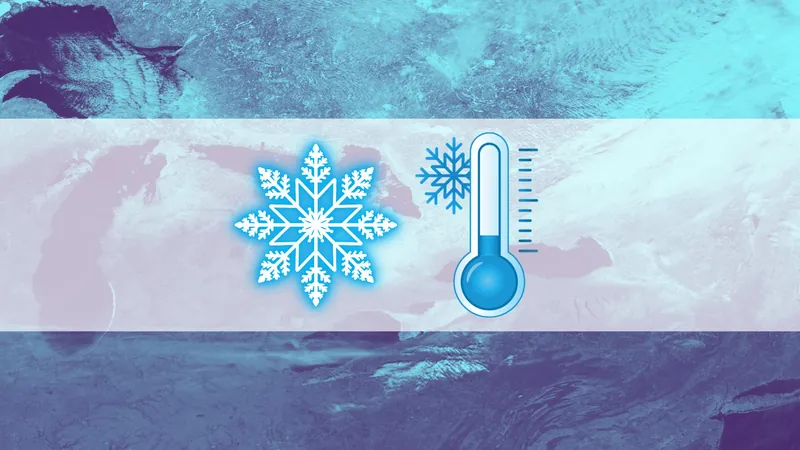
Canadian Astronomers Score Nearly 300 Hours with the Webb Telescope in Major Breakthrough!
2025-04-03
Author: Emily
Since the launch of the James Webb Space Telescope (JWST) in 2022, groundbreaking progress has been made in exoplanet research, notably with discoveries like carbon dioxide in the atmosphere of the hot Jupiter WASP-39 b and detailed studies of Trappist-1 b. However, gaining access to observation time with the JWST is highly competitive, with only a fraction of submitted proposals successfully selected each year.
On March 11, the Space Telescope Science Institute (STScI) announced the results for Cycle 4 of the JWST's observing schedule. Out of 2,346 proposals submitted, an impressive 274 were awarded observation time for the period spanning from July 2025 to June 2026, totaling 8,500 hours. Among the noteworthy contributors this year, Canadian researchers clinched a remarkable share of the total observation hours, securing 10% through 11 distinct programs—an incredible achievement reflecting the nation's growing prominence in astronomical research.
The research team IREx (Institute for Research on Exoplanets), renowned for their specialized knowledge, achieved a phenomenal 165 hours of observation time. This success is further bolstered by the selection of two newly graduated researchers from the University of Montreal, who together will conduct studies totaling 133 hours.
Selected Research Programs:
1. **Probing Infernal Worlds**
- **Principal Investigator:** Lisa Dang, postdoctoral researcher at IREx/UdeM
- **Time Awarded:** 100.5 hours with the MIRI instrument
- *Objective:* This program aims to analyze five "lava planets," which are exposed to extreme temperatures and molten surfaces, to understand their atmospheric compositions and internal structures.
2. **Exploring Stellar Flares from Small Stars**
- **Principal Investigator:** Dhvani Doshi, PhD student at IREx/McGill
- **Time Awarded:** 47.6 hours with the NIRISS instrument
- *Objective:* The team will observe five M dwarf stars, known for their intense stellar flares, to compile a comprehensive catalog of near-infrared stellar eruption events that could influence exoplanet detection.
3. **Mapping the Ultra-Hot Jupiter KELT-20b**
- **Principal Investigator:** Joost Wardenier, postdoctoral researcher at IREx/UdeM
- **Time Awarded:** 16.7 hours with the NIRSpec instrument
- *Objective:* By applying “eclipse mapping” techniques, this project will develop a detailed 3D temperature map of KELT-20b, enhancing our understanding of atmospheric dynamics on ultra-hot Jupiters.
Additional Noteworthy Programs by Former IREx Members:
4. **Unveiling the Nature of Super-Puffs**
- **Principal Investigators:** Michael Radica and Caroline Piaulet-G.
- **Time Awarded:** 94.6 hours utilizing multiple JWST instruments
- *Objective:* This ambitious project examines super-puff exoplanets to unravel the mystery of their unusually large sizes, potentially indicating existence of high interior temperatures and atmospheric hazes.
5. **Revealing the Chemistry and Formation of Exo-Neptunes**
- **Principal Investigator:** Caroline Piaulet-G.
- **Time Awarded:** 38 hours with multiple instruments
- *Objective:* The focus here is on studying the exoplanet TOI-674 b, delving into its atmospheric properties that might shed light on the formation processes of similar planets.
These selected programs underscore Canada's vital role in the international astronomical community, showcasing the collaborative spirit of research teams around the globe. Astronomers are enthusiastic about their awarded time and are eager to contribute to our understanding of the universe.
Looking ahead, the Cycle 5 call for proposals from the JWST is set for August 2025, promising yet more exciting opportunities for astronomical exploration and discovery. The stage is set for further revelations that may redefine our understanding of exoplanets and their characteristics. Stay tuned!









 Brasil (PT)
Brasil (PT)
 Canada (EN)
Canada (EN)
 Chile (ES)
Chile (ES)
 Česko (CS)
Česko (CS)
 대한민국 (KO)
대한민국 (KO)
 España (ES)
España (ES)
 France (FR)
France (FR)
 Hong Kong (EN)
Hong Kong (EN)
 Italia (IT)
Italia (IT)
 日本 (JA)
日本 (JA)
 Magyarország (HU)
Magyarország (HU)
 Norge (NO)
Norge (NO)
 Polska (PL)
Polska (PL)
 Schweiz (DE)
Schweiz (DE)
 Singapore (EN)
Singapore (EN)
 Sverige (SV)
Sverige (SV)
 Suomi (FI)
Suomi (FI)
 Türkiye (TR)
Türkiye (TR)
 الإمارات العربية المتحدة (AR)
الإمارات العربية المتحدة (AR)